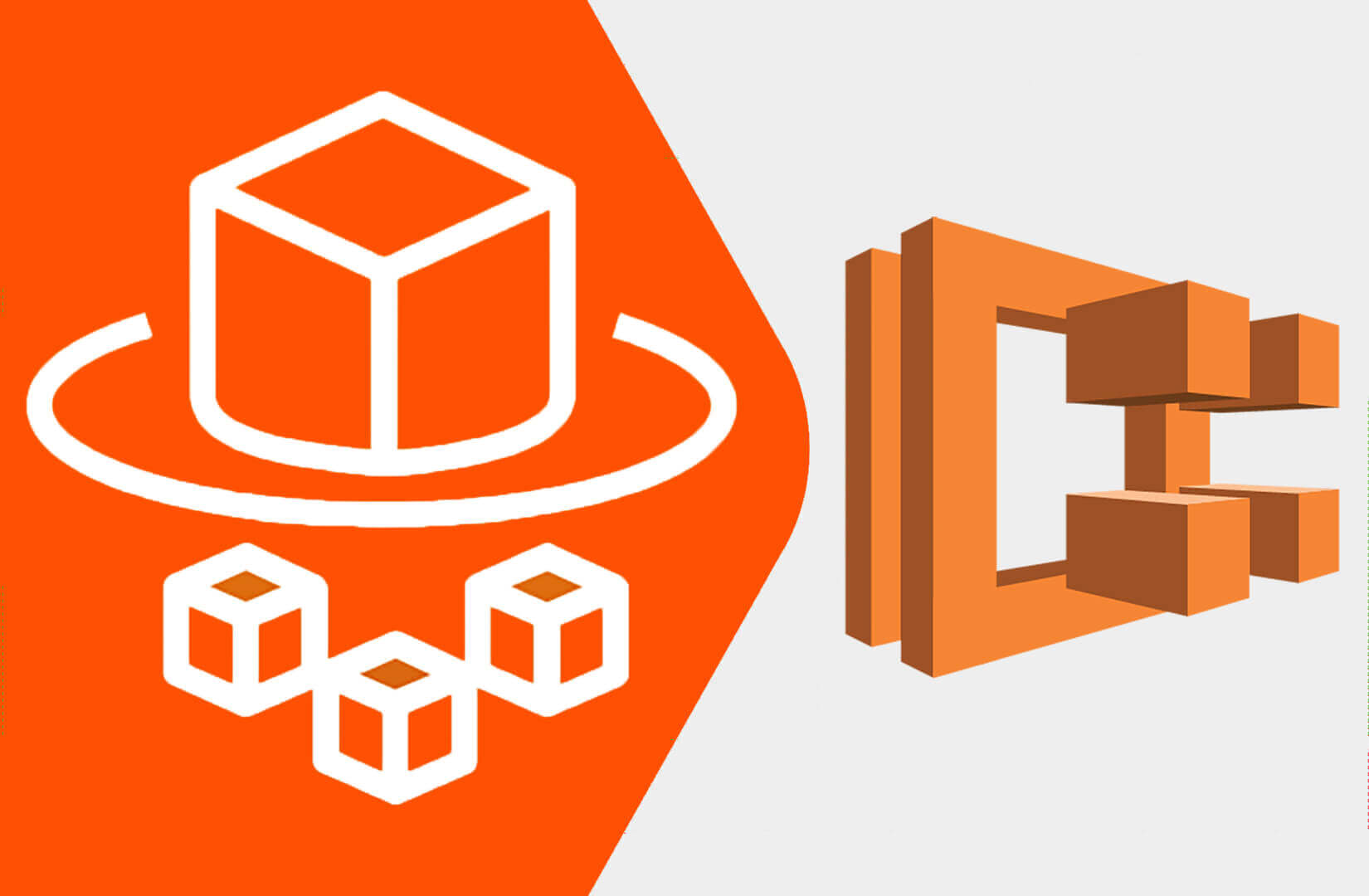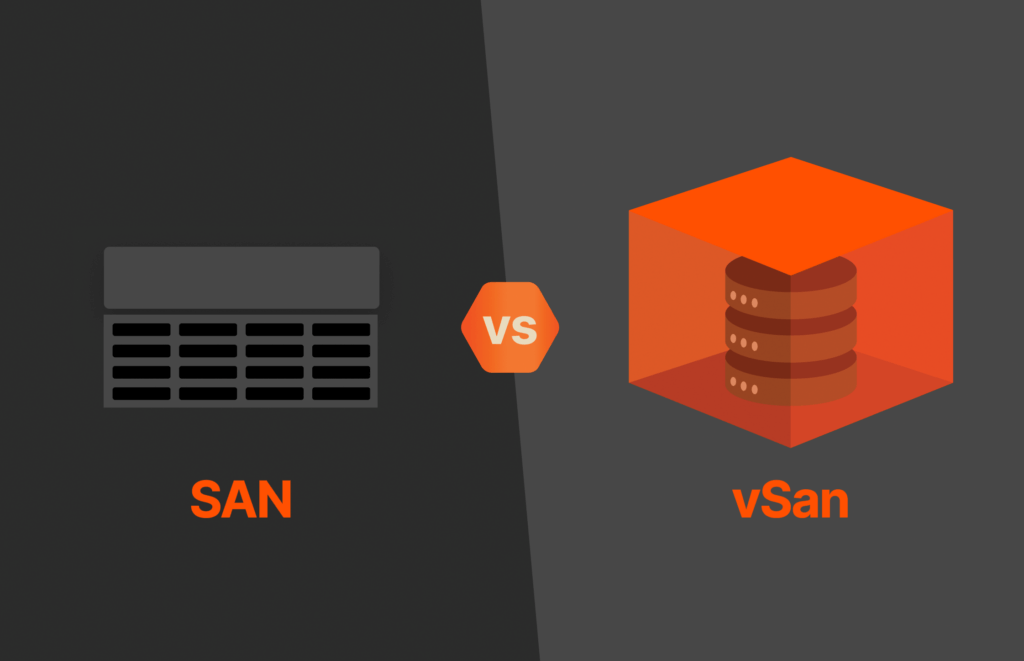Summary
Fargate and Elastic Container Service (ECS) are two tools offered by Amazon Web Services (AWS) for container management. Fargate is a serverless compute engine, while ECS is a fully managed container orchestration service.
As more businesses adopt cloud-driven software development, containerization has become a popular approach to deploying and managing applications, thanks to its flexibility. However, with this flexibility comes the challenge of choosing the right container management solution.
Amazon Web Services (AWS) offers two great solutions to address this concern: Fargate and ECS. In this article, we’ll dive into these tools, compare their features, and understand their ideal use cases.
What Is Fargate?
AWS Fargate is a serverless compute engine designed to manage containers. It abstracts away the underlying infrastructure, allowing developers to focus solely on deploying and managing their applications. Fargate eliminates the need to provision and manage servers or clusters manually, offering a streamlined approach to container orchestration.
AWS Fargate offers interesting features that provide many benefits, such as:
- Serverless simplicity: Fargate operates on a serverless architecture. You simply define your container configuration, and Fargate handles the rest. No more provisioning servers, patching operating systems, or scaling clusters—Fargate takes care of the underlying infrastructure, freeing you to focus on building and deploying your applications.
- Effortless scaling: Fargate automatically scales your containers based on demand. This means your applications can seamlessly handle traffic spikes without any manual intervention. Fargate dynamically allocates resources as needed, ensuring optimal performance and cost efficiency.
- Reduced operational overhead: By eliminating server management tasks, Fargate significantly reduces operational overhead. This translates to faster development cycles, lower IT costs, and a more streamlined development experience.
- Focus on what matters: With Fargate managing the infrastructure, you can dedicate your time and resources to what truly matters—developing, testing, and optimizing your containerized applications. It allows developers to focus on their core competencies and deliver innovative solutions faster.

Modern Hybrid Cloud Solutions
Seamless Cloud Mobility
Unify cloud and on-premises infrastructure with a modern data platform.
What Is ECS?
AWS Elastic Container Service (ECS) is a fully managed container orchestration service that allows users to run and scale containerized applications on AWS. ECS provides flexibility by allowing users to choose between managing their own infrastructure or leveraging AWS-managed infrastructure. It integrates seamlessly with other AWS services and offers fine-grained control over container placement and resource allocation.
ECS prioritizes the following benefits:
- Container orchestration: ECS excels at coordinating the deployment and lifecycle management of containerized applications, similar to Kubernetes. It allows you to define how your containers should run, where they should be placed, and how they should interact with each other. This ensures your applications run smoothly and efficiently across a distributed environment.
- Flexibility and control: ECS offers a high degree of flexibility and control over your container infrastructure. You can run your containers on AWS-managed EC2 instances (virtual servers) or your own server instances. This allows you to tailor the infrastructure to your specific needs and leverage existing resources if needed.
- Integration with AWS services: ECS integrates seamlessly with other AWS services, such as Amazon Elastic Container Registry (ECR) for storing container images and Amazon S3 for persistent storage. This tight integration with AWS simplifies the management of your entire containerized application ecosystem within the AWS cloud.
- Scalability on demand: Like Fargate, ECS allows you to scale your containerized applications based on demand. You can define scaling policies that automatically adjust the number of running containers based on factors like CPU usage or memory consumption.
Fargate vs. ECS: Comparison
The following is a detailed comparison of AWS Fargate and ECS (Elastic Container Service) across various aspects crucial for container management.
Architecture
Fargate is a serverless compute engine where users deploy containers without managing the underlying infrastructure. AWS handles server provisioning, scaling, and maintenance transparently. Fargate abstracts away the underlying server and network infrastructure, limiting certain integrations with technologies that require more in-depth system access and customization.
ECS allows users to choose and manage the servers (EC2 instances) on which your containers run.
Deployment Options
Fargate simplifies deployment by abstracting server management entirely. It offers a seamless experience for running containers without worrying about server provisioning.
ECS provides flexibility with both EC2 and Fargate launch types. Users can opt for the EC2 launch type for more control over infrastructure or the Fargate launch type for serverless container deployment.
Pricing Models
Fargate follows a pay-as-you-go pricing model based on resource consumption (CPU and memory). Users are charged only for the vCPU and memory allocated to their containers.
ECS pricing is based on the underlying EC2 instances used for container hosting (if using EC2 launch type) or the resources allocated to Fargate tasks. It offers flexibility in choosing instance types and pricing models.
Performance, Scalability, and Security
- Performance: Both Fargate and ECS offer excellent performance. Fargate’s serverless nature optimizes resource allocation, while ECS provides control over instance types and configurations for tailored performance.
- Scalability: Fargate and ECS support automatic scaling based on workload demands. Fargate dynamically adjusts resources, whereas ECS allows users to scale EC2 instances manually or automatically.
- Security: Both services leverage AWS security features, including IAM roles, VPC (Virtual Private Cloud) isolation, and security groups. Fargate and ECS ensure secure container deployments within AWS environments.
Ease of Use, Learning Curve, and Community Support
Fargate is generally easier to set up and manage due to its serverless nature and lower learning curve. ECS requires more configuration but offers more control over infrastructure. It requires an understanding of container orchestration concepts and AWS services.
Both Fargate and ECS benefit from strong community support within the AWS ecosystem. Users can find extensive documentation, tutorials, and community forums for troubleshooting and best practices.
Use Cases for Fargate
Fargate’s serverless nature makes it a perfect fit for various containerized application scenarios. This is particularly useful in scenarios such as:
- Bursty workloads: Fargate’s automatic scaling seamlessly handles these fluctuations due to spikes in traffic. You no longer need to pre-provision servers to accommodate peak loads. Fargate dynamically allocates resources as needed, ensuring smooth performance during traffic surges and avoiding overspending on idle resources during lulls.
- Unpredictable traffic patterns: Some applications, like those involved in data processing or media encoding, have unpredictable traffic patterns. Fargate eliminates the guesswork of server capacity planning. You simply define your container configuration, and Fargate takes care of scaling based on real-time resource demands. This simplifies infrastructure management and keeps your costs optimized.
- Rapid deployments and microservices: Fargate’s streamlined deployment process makes it ideal for microservices architectures and rapid application deployments. Developers can focus on building and deploying containerized services without getting bogged down in server management. This allows for faster development cycles and quicker time to market for new features.
Use Cases for ECS
While Fargate offers a streamlined serverless experience, some applications demand a more precise approach. This is where ECS steps in with container orchestration and granular control. You can use ECS for:
- Complex applications with specific infrastructure needs: For applications with intricate resource requirements or dependencies on specific hardware configurations, ECS provides the flexibility to tailor the infrastructure. You can choose the optimal EC2 instance types based on CPU, memory, and storage needs, ensuring your containers have the precise resources to perform optimally.
- Stateful applications: Certain applications require persistent storage to maintain data between container restarts. ECS, when deployed on EC2 instances, allows you to leverage various storage options like Amazon Elastic Block Store (EBS) for persistent data volumes. This ensures your stateful applications can function seamlessly within your containerized environment.
- Legacy infrastructure integration: If you have existing on-premises infrastructure or utilize a hybrid cloud approach, ECS integrates smoothly. You can manage containerized workloads running on your own EC2 instances alongside those running in the AWS cloud. This fosters a unified container management experience across your hybrid environment.
Conclusion
Fargate and ECS, both from AWS, are powerful tools for managing containerized applications. Fargate offers a serverless approach with simplified management, while ECS provides greater flexibility and control over infrastructure. By integrating Fargate with a persistent storage solution like Portworx® and Pure Cloud Block Store™, you can improve on the constraints of the abstraction that the service offers.

Written By:
Try Portworx
Take a free test drive in the virtual lab.






